China’s auto market grew in April, overcoming an early-year collapse triggered by the coronavirus shutdown — and 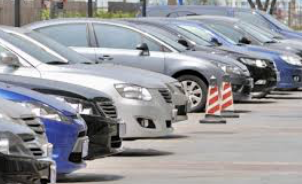 ending a nearly two-year streak of sales declines that has shaken the world’s largest auto market. Before the coronavirus, China had been seeing an economic downturn following years of historic growth in new vehicle sales.
ending a nearly two-year streak of sales declines that has shaken the world’s largest auto market. Before the coronavirus, China had been seeing an economic downturn following years of historic growth in new vehicle sales.
The market’s new energy vehicles also saw a turnaround during that month. China includes all electric, plug-in hybrid, and hydrogen fuel cell vehicles in these totals for passenger and commercial vehicles.
The Tesla Model 3’s sales in China fell over 64 percent last month compared with the previous month. That sales decline happened despite a 9.8 percent month-on-month increase in electric sales in China last month. The Model 3 did see very good months in the first quarter, bucking China’s trend in new vehicle sales plunging.
All of this is happening as the Covid-19 crisis impact has started softening in China’s economy and the world’s largest auto market. China’s recovery could be a good sign for the start of economic recovery that should slowly spread to the US.
But China’s leading auto trade group warns that the fight won’t be over — with sales expected to be down 15 percent overall versus the previous year. Much of that took place in the first quarter of this year, with sales improvements expected to continue for at least two more months.
US new vehicle sales volumes were down about 50 percent year over year in April. Car shoppers are staying out of dealerships during the pandemic — and that includes online sales. Tesla does have the advantage of getting its customers to go that route from its very beginning, with some analysts pointing to Tesla’s retail model as a sign of the future for competitors and their dealer networks.
Data on plug-in hybrid and battery electric vehicle sales in the US is very difficult to find these days, as the leading sources stopped publishing their reports last year and into this year. One analysis piece expects that EV sales will decline in the US for up to 12-to-18 months. A real double whammy has hit the market through the Covid-19 pandemic and drastically lower oil prices.
EV sales of course won’t be going away entirely in the US, and some automakers will continue to prioritize their lineups. Volvo Cars was pleased to announce that its Recharge lineup of plug-in models doubled in the first four months of this year from 7 percent of its sales to 14 percent. The company also reported seeing a nearly 44 percent drop in overall new sales last month.
Tesla chief Elon Musk was pleased to tell stakeholders at the company’s recent earnings call that the Model 3’s prices will be going down in China. That should help bring it back to competing with market leaders. BYD and Ford took the two top spots in China last month in EV sales, with the Model 3 coming in third.
Tesla wants to open up its third auto assembly plant in Germany, which appears to be going forward. For now, China will be a very important market to establish firm footing within. That’s the case for a few other major automakers that have put lots of capital into EV sales in China — including General Motors, Ford, and Volkswagen.

 148,704 plug-in vehicles were sold in the U.S. during the first half of 2019, compared to 124,256 for first half of 2019. That makes for an increase of 19.67 percent over that same period last year of plug-in hybrid and battery electric vehicles. Through May, there were 840,814 in global plug-in vehicle sales, versus 591,796 for the first five months of 2018 — an increase of 42 percent over that same period last year.
148,704 plug-in vehicles were sold in the U.S. during the first half of 2019, compared to 124,256 for first half of 2019. That makes for an increase of 19.67 percent over that same period last year of plug-in hybrid and battery electric vehicles. Through May, there were 840,814 in global plug-in vehicle sales, versus 591,796 for the first five months of 2018 — an increase of 42 percent over that same period last year. ahead of the 2018 Consumer Electronics Show (CES) in Las Vegas. Aurora Innovation also signed a deal with Hyundai this week, similar to its alliance with VW, to bring its self-driving software into commercial use. Based in Palo Alto, Calif., and Pittsburgh, Penn., Aurora designs and builds self-driving technology, partnering with automakers to integrate, pilot and deploy advanced self-driving platforms into vehicles. Founded by CEO Chris Urmson, Chief Product Officer Sterling Anderson and Chief Technical Officer Drew Bagnell, Aurora is working to solve today’s most complex AI, automation and engineering challenges to improve transportation and positively impact cities. Urmson had played a leading role at Google’s self-driving car unit, before it became Waymo.
ahead of the 2018 Consumer Electronics Show (CES) in Las Vegas. Aurora Innovation also signed a deal with Hyundai this week, similar to its alliance with VW, to bring its self-driving software into commercial use. Based in Palo Alto, Calif., and Pittsburgh, Penn., Aurora designs and builds self-driving technology, partnering with automakers to integrate, pilot and deploy advanced self-driving platforms into vehicles. Founded by CEO Chris Urmson, Chief Product Officer Sterling Anderson and Chief Technical Officer Drew Bagnell, Aurora is working to solve today’s most complex AI, automation and engineering challenges to improve transportation and positively impact cities. Urmson had played a leading role at Google’s self-driving car unit, before it became Waymo.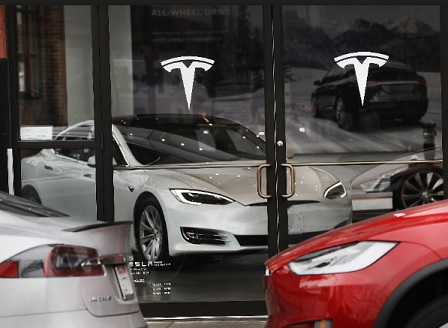 and a $21 million profit in Q3 2016. That’s coming from the huge investment needed for ramping up production of the Model 3 at its Fremont, Calif., assembly plant and its Nevada-based Gigafactory. The company also reported a record $3 billion in quarterly revenue and delivery of about 26,000 vehicles. Speeding up Model 3 production has hit a bottleneck, much of it at the battery factory in Nevada. The goal of building 5,000 of the more affordable electric cars at 5,000 units per week has been moved from the end of 2017 to early 2018. “While we continue to make significant progress each week in fixing Model 3 bottlenecks, the nature of manufacturing challenges during a ramp such as this makes it difficult to predict exactly how long it will take for all bottlenecks to be cleared or when new ones will appear,” Tesla said.
and a $21 million profit in Q3 2016. That’s coming from the huge investment needed for ramping up production of the Model 3 at its Fremont, Calif., assembly plant and its Nevada-based Gigafactory. The company also reported a record $3 billion in quarterly revenue and delivery of about 26,000 vehicles. Speeding up Model 3 production has hit a bottleneck, much of it at the battery factory in Nevada. The goal of building 5,000 of the more affordable electric cars at 5,000 units per week has been moved from the end of 2017 to early 2018. “While we continue to make significant progress each week in fixing Model 3 bottlenecks, the nature of manufacturing challenges during a ramp such as this makes it difficult to predict exactly how long it will take for all bottlenecks to be cleared or when new ones will appear,” Tesla said.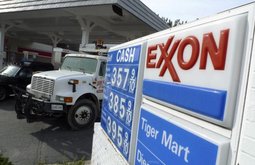 government and the Louisiana Department of Environmental Quality. The company will install and operate air pollution and monitoring technology for pollution reductions coming from eight of its petrochemical manufacturing facilities in Texas and Louisiana. The Dept. of Justice and Environmental Protection Agency had been enforcing violations of the Clean Air Act, coming from the oil company failing to accurately monitor industrial flares at the facilities, causing excess emissions. Some environmentalists say the settlement is not nearly enough to address violations by the oil company going back a decade. EPA administrator Scott Pruitt said its shows the EPA’s commitment to enforcing the law and working with states to address compliance with environmental regulations. It may not address other claims, such as those filed in June by New York’s attorney general accusing former ExxonMobil chief and current Secretary of State Rex Tillerson of misleading investors on the costs of climate change while Tillerson led the oil giant.
government and the Louisiana Department of Environmental Quality. The company will install and operate air pollution and monitoring technology for pollution reductions coming from eight of its petrochemical manufacturing facilities in Texas and Louisiana. The Dept. of Justice and Environmental Protection Agency had been enforcing violations of the Clean Air Act, coming from the oil company failing to accurately monitor industrial flares at the facilities, causing excess emissions. Some environmentalists say the settlement is not nearly enough to address violations by the oil company going back a decade. EPA administrator Scott Pruitt said its shows the EPA’s commitment to enforcing the law and working with states to address compliance with environmental regulations. It may not address other claims, such as those filed in June by New York’s attorney general accusing former ExxonMobil chief and current Secretary of State Rex Tillerson of misleading investors on the costs of climate change while Tillerson led the oil giant.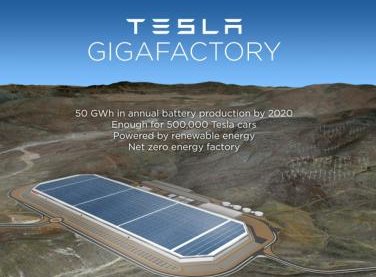 speed in the near future. Panasonic CEO Kazuhiro Tsuga said yesterday that delays to the automation of the battery pack production line meant some of it had to be completed manually. It will soon be automated, meaning the number of vehicles to be produced will rise sharply, he said. Tsugu declined to comment on how his company sees the production schedule will be carried out compared to the original projection. Automotive demand from Tesla and other auto industry customers helped the Japanese electronics company’s operating profit rise 6% during the July-September period. Panasonic supplies battery cells for Gigafactory production of Tesla’s battery packs. Earlier this month, Tesla had said that manufacturing bottlenecks had caused the slowdown for the Model 3 – down to 260 produced versus the original goal of 1,500 during the past quarter.
speed in the near future. Panasonic CEO Kazuhiro Tsuga said yesterday that delays to the automation of the battery pack production line meant some of it had to be completed manually. It will soon be automated, meaning the number of vehicles to be produced will rise sharply, he said. Tsugu declined to comment on how his company sees the production schedule will be carried out compared to the original projection. Automotive demand from Tesla and other auto industry customers helped the Japanese electronics company’s operating profit rise 6% during the July-September period. Panasonic supplies battery cells for Gigafactory production of Tesla’s battery packs. Earlier this month, Tesla had said that manufacturing bottlenecks had caused the slowdown for the Model 3 – down to 260 produced versus the original goal of 1,500 during the past quarter.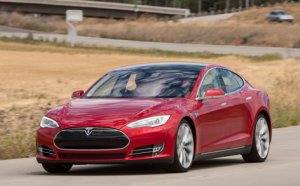 was up 32% year-over-year by the end of September. December 2015 had been its top selling month, with just over 33,800 units sold. Sales are expected to be strong in the fourth quarter, with historic data showing sales always improving over the last three months of the year in the region. Plug-in vehicles increased to 2.2% of overall new vehicle sales in Europe during September. Tesla saw its best month ever in Europe with the Model S coming in at #1 with an estimated 2,527 units sold. The next four on the list for top five selling PEVs in Europe during September were the Renault Zoe at 2,306 units sold, the Tesla Model X at 2,137, the Mitsubishi Outlander PHEV at 2,080, and the Volkswagen e-Golf at 2,041 units sold.
was up 32% year-over-year by the end of September. December 2015 had been its top selling month, with just over 33,800 units sold. Sales are expected to be strong in the fourth quarter, with historic data showing sales always improving over the last three months of the year in the region. Plug-in vehicles increased to 2.2% of overall new vehicle sales in Europe during September. Tesla saw its best month ever in Europe with the Model S coming in at #1 with an estimated 2,527 units sold. The next four on the list for top five selling PEVs in Europe during September were the Renault Zoe at 2,306 units sold, the Tesla Model X at 2,137, the Mitsubishi Outlander PHEV at 2,080, and the Volkswagen e-Golf at 2,041 units sold.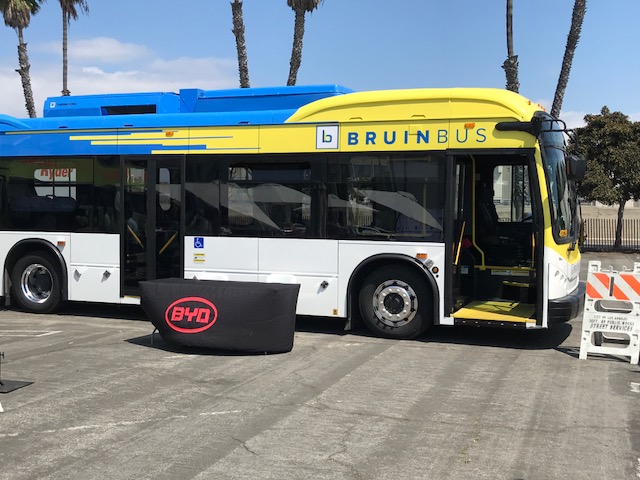 electric buses, but also for moving goods. Andy Swanton, vice president of truck sales at BYD,
electric buses, but also for moving goods. Andy Swanton, vice president of truck sales at BYD, 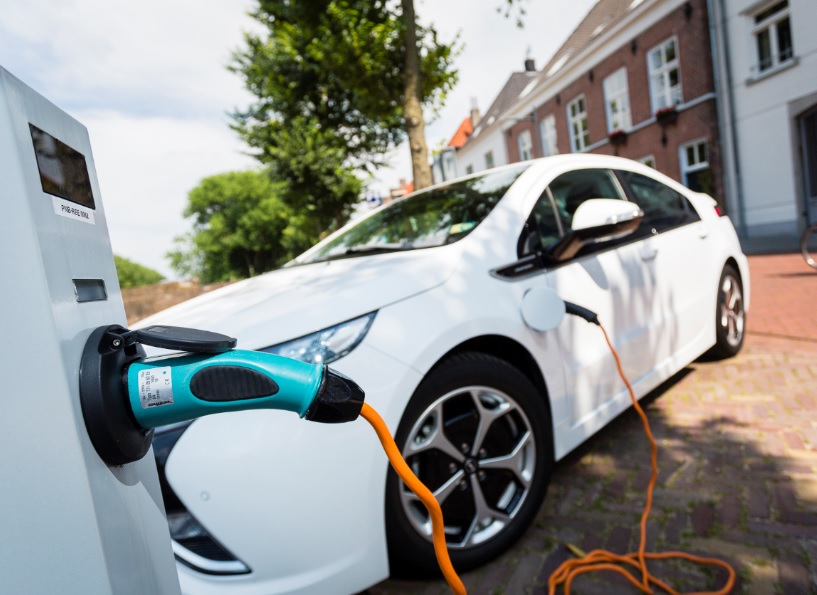 discussions from Oct. 9-11. Overall, about 9,500 people have been in attendance as participants and trade fair visitors. Panelists and those visiting exhibits have been discussing the future of mobility at the 30th EVS. The mood was positive, and discussions focused on the next phase of the EV industry’s future coming together this year. “Technological prerequisites have been created and some electrification products are already available, as demonstrated by the 353 exhibitors…….” according to conference planners.
discussions from Oct. 9-11. Overall, about 9,500 people have been in attendance as participants and trade fair visitors. Panelists and those visiting exhibits have been discussing the future of mobility at the 30th EVS. The mood was positive, and discussions focused on the next phase of the EV industry’s future coming together this year. “Technological prerequisites have been created and some electrification products are already available, as demonstrated by the 353 exhibitors…….” according to conference planners.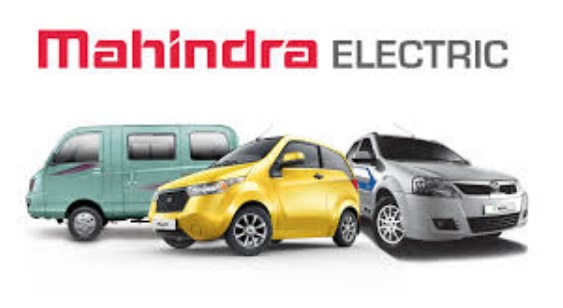 near future. Mahindra had just lost a bid for a 10,000 EV contract with the government’s Energy Efficiency Services Limited agency to its main Indian competitor, Tata Motors. Mahindra was awarded part of the contract after lowering prices to match Tata’s lowest bid; the company admitted it won’t make any profits off the sales of its eVerito electric sedan to the Indian agency. Tata was able to win the majority of the contract even though it has yet to manufacture any EVs. Mahindra has been in the segment for a few years with its e20 and e20 plus small electric hatchback models, the eVerito electric sedan, the eSupro electric van, and the e-Alfa Mini three-wheeler. The government wants to stop sales of fossil-fuel powered vehicles and is supporting electric vehicle development. The company’s subsidiary, Mahindra Electric, will operate as a separate entity supplying components to the Mahindra & Mahindra company, which will manufacture the EVs. The company currently operates a battery manufacturing plant and hopes to set up another larger facility soon.
near future. Mahindra had just lost a bid for a 10,000 EV contract with the government’s Energy Efficiency Services Limited agency to its main Indian competitor, Tata Motors. Mahindra was awarded part of the contract after lowering prices to match Tata’s lowest bid; the company admitted it won’t make any profits off the sales of its eVerito electric sedan to the Indian agency. Tata was able to win the majority of the contract even though it has yet to manufacture any EVs. Mahindra has been in the segment for a few years with its e20 and e20 plus small electric hatchback models, the eVerito electric sedan, the eSupro electric van, and the e-Alfa Mini three-wheeler. The government wants to stop sales of fossil-fuel powered vehicles and is supporting electric vehicle development. The company’s subsidiary, Mahindra Electric, will operate as a separate entity supplying components to the Mahindra & Mahindra company, which will manufacture the EVs. The company currently operates a battery manufacturing plant and hopes to set up another larger facility soon.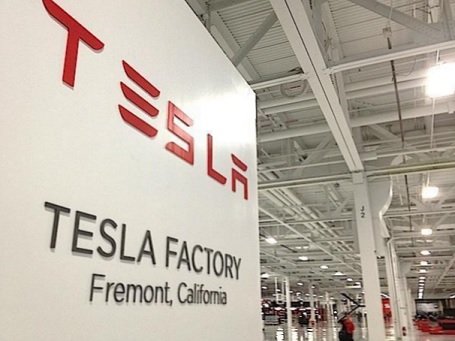 fired, including engineers, managers, and factory workers. Tesla wouldn’t say how many employees were let go, although the company expects employee turnover to be similar to last year’s attrition. They were not layoffs, the company said, but were dismissals based on a company-wide annual review. In interviews with the newspaper, former and current employees said there was little or no warning was given prior to the dismissals. “As with any company, especially one of over 33,000 employees, performance reviews also occasionally result in employee departures,” a Tesla spokesman said. “Tesla is continuing to grow and hire new employees around the world.”
fired, including engineers, managers, and factory workers. Tesla wouldn’t say how many employees were let go, although the company expects employee turnover to be similar to last year’s attrition. They were not layoffs, the company said, but were dismissals based on a company-wide annual review. In interviews with the newspaper, former and current employees said there was little or no warning was given prior to the dismissals. “As with any company, especially one of over 33,000 employees, performance reviews also occasionally result in employee departures,” a Tesla spokesman said. “Tesla is continuing to grow and hire new employees around the world.”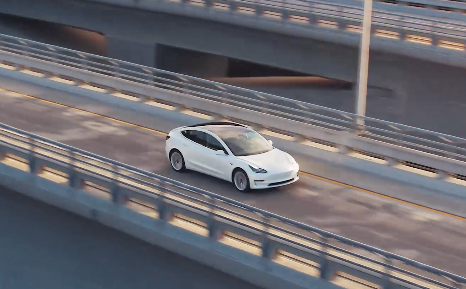 cancellations came from people burning out over having to wait an hour and a half to complete the order process online. During a quarterly earnings call yesterday, the company announced that it had burned through about $1.16 billion in cash during Q2 to keep the Model 3 factory on schedule along with Gigafactory battery production. Stocks closed yesterday with a 7.4% jump to $350.13 as investors remained enthusiastic.
cancellations came from people burning out over having to wait an hour and a half to complete the order process online. During a quarterly earnings call yesterday, the company announced that it had burned through about $1.16 billion in cash during Q2 to keep the Model 3 factory on schedule along with Gigafactory battery production. Stocks closed yesterday with a 7.4% jump to $350.13 as investors remained enthusiastic.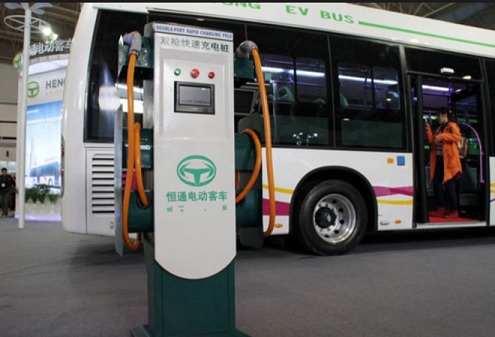 property and honoring trade practices between the nations. Senate Democratic leader Chuck Schumer was one of the three. Trump has been pressing China to cut steel production to cut oversupply and to rein in North Korea’s missile testing program. The Obama administration, while also concerned over high tariffs and equitable trade, had established strong relations with the country on vehicle electrification and renewable energy goals. Now it’s up to California and Gov. Jerry Brown to keep those goals going – electric cars, buses, and trucks. China is likely to adopt some version of California’s zero emission vehicle policy by the end of the year. But relations between the two nations could be a stumbling block.
property and honoring trade practices between the nations. Senate Democratic leader Chuck Schumer was one of the three. Trump has been pressing China to cut steel production to cut oversupply and to rein in North Korea’s missile testing program. The Obama administration, while also concerned over high tariffs and equitable trade, had established strong relations with the country on vehicle electrification and renewable energy goals. Now it’s up to California and Gov. Jerry Brown to keep those goals going – electric cars, buses, and trucks. China is likely to adopt some version of California’s zero emission vehicle policy by the end of the year. But relations between the two nations could be a stumbling block. renewables and energy storage are well positioned to continue seeing strong growth. State-level policies have been drivers and will continue. Renewable fuels are most vulnerable to Trump’s agenda. “With uncertainty looming and the administration continuing to consider oil-and gas-friendly policies, Trump’s decision to remove the renewable fuel obligation could alter a decade-old ethanol industry,” the report said.
renewables and energy storage are well positioned to continue seeing strong growth. State-level policies have been drivers and will continue. Renewable fuels are most vulnerable to Trump’s agenda. “With uncertainty looming and the administration continuing to consider oil-and gas-friendly policies, Trump’s decision to remove the renewable fuel obligation could alter a decade-old ethanol industry,” the report said.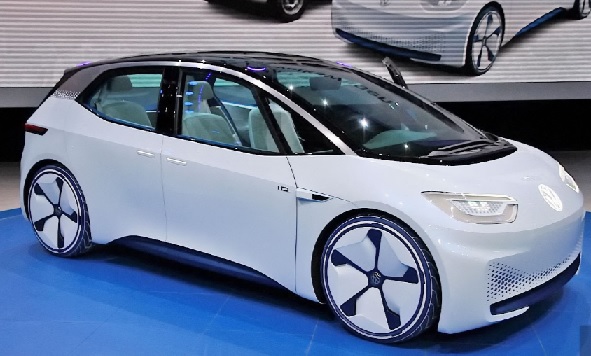 VW’s Chief of Corporate Strategy Thomas Sedran said in an interview with German site Automobil Produktion that the starting price for an ID will be down to $27,000 before incentives – $8,000 cheaper than the $35,000 Model 3. That will still take a while as the German automaker’s ID portfolio is still in the early development phase; it will take a few years for the first one to show up at dealerships.
VW’s Chief of Corporate Strategy Thomas Sedran said in an interview with German site Automobil Produktion that the starting price for an ID will be down to $27,000 before incentives – $8,000 cheaper than the $35,000 Model 3. That will still take a while as the German automaker’s ID portfolio is still in the early development phase; it will take a few years for the first one to show up at dealerships.